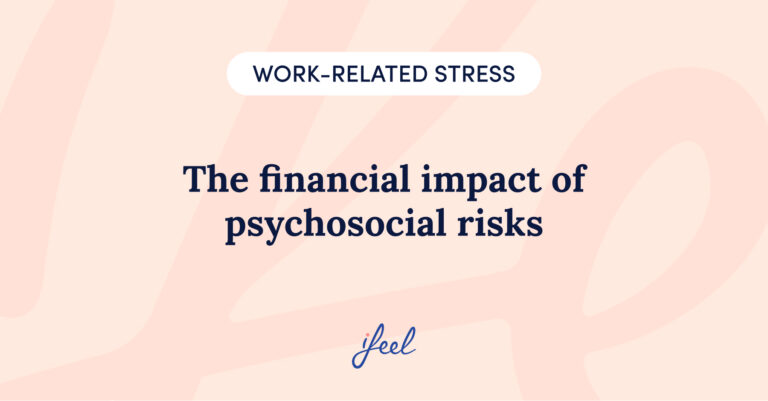Sports and workplace well-being have a very close relationship that has been studied extensively. The unresolved issue for many people is translating this into specific habits in their daily lives that are suitable for them. For companies, the remaining challenge is understanding the relationship between sports and workplace well-being and its benefits for their employees and implementing this knowledge in their psychological well-being care strategies. Read more about it in this post.
How do you combine sports and workplace well-being?
Most people who are fond of regular physical activity already have gym routines, some team sports, weekend outings, or excursions where they can enjoy physical activity in the natural environment.
However, this is already fully established in many individuals’ lives and can encounter some obstacles: we do not always have time to do the physical activity we would like (or need), the nearest gym to our home is a bit expensive or does not have slots available, we live far from parks or with little access to the countryside… This, which is not the end of the world, can often be accompanied by some frustration from the people concerned, who do not have the opportunity to combine sports and workplace well-being due to their habits and hobbies. It should be in the interest of their companies to make it easier for them to practice some kind of physical activity.

Organising team-building activities from time to time that include field trips, yoga classes, a football game, or even games that involve physical activity can be a good way to connect with employees who are sports enthusiasts and suggest new ways to practice sports. It may also be advisable to offer discounts or gym vouchers to employees or, if the company has the necessary resources, to set up some kind of facility where it is feasible to exercise or play games (a hoop, exercise bikes, yoga, or meditation mats…).
The relationship between sports and workplace well-being
Sports and workplace well-being are intricately linked, providing significant benefits for both individuals and organisations. Engaging in sports can lead to improved physical health, enhanced mood, and better team cohesion, which in turn can boost productivity and job satisfaction in the workplace.
According to a study published in the Journal of Occupational and Environmental Medicine, regular physical activity among employees is linked to lower absenteeism rates and higher job satisfaction. The study emphasizes that organizations promoting physical fitness can directly impact their bottom line due to reduced healthcare costs and improved employee performance.
Benefits of sports and workplace well-being
| Benefit | Description |
|---|---|
| Improved Physical Health | Regular sports activities help reduce the risk of chronic diseases and manage weight. |
| Enhanced Mental Health | Physical activity boosts endorphins, improving mood and reducing stress and anxiety levels. |
| Increased Productivity | Employees who engage in physical activities report better concentration and work output. |
| Better Sleep | Regular physical exertion improves sleep quality, crucial for recovery and daily functioning. |
| Stronger Team Bonds | Team sports and related activities enhance cooperation and communication among colleagues. |
| Higher Job Satisfaction | An active lifestyle contributes to overall job satisfaction through improved health and work-life balance. |
Incorporating sports into a workplace well-being program not only fosters a healthier workforce but also cultivates a more dynamic, engaged, and productive work environment. Companies that invest in such programs can expect to see a return in terms of both employee health and corporate outcomes.
6 links between sports and workplace well-being
1. Control your physical response
This is what we generally call unloading energy, relaxing, or, to put it colloquially, “rearranging” our activity to regain our balance and feel good.
2. Improved rest
Releasing excess energy or relaxing during the day is fundamental, but we must also take care of the quality of our sleep in order to maintain our physical and psychological health. The continuous practice -and enjoyment- of some kind of physical activity helps us to compensate for sedentary lifestyles and improves the quality of our sleep. This greatly influences our immune system, our cognitive capacity (analysing, interpreting, and remembering information, making decisions, solving problems, focusing our attention), and our mood. All these benefits are valuable in themselves but it is also worth considering how much they can improve our work performance and productivity.
3. Improves self-image
The link between sports and workplace well-being also has a positive influence on our confidence in our abilities and our way of interacting with others. It’s not necessarily about bulking up our muscles in order to perform our job better. It’s about improving our health, perhaps by shedding excess weight, improving our endurance, toning our muscles, and so on.
So, even if not in a radical way, our image benefits from sports, sometimes because of how we perceive it subjectively, sometimes because we can dress in ways that we think are more flattering to us, and so on. This gives us security and we can perfectly transfer it to the workplace.
4. Stimulates a positive mood
Playing sports stimulates the brain’s reward circuits, encouraging endorphin release, producing a general well-being feeling. This explains, in part, why doing certain sports in certain conditions is fun, pleasurable, and stimulating for many people and why, after establishing it as a habit, the desire to practice it is produced. It is as if our body literally misses physical exercise and asks for it. Of course, a few things are potentially as good for work performance as a good state of mind.
5. Trains the ability to structure habits
Through sport, we foster characteristics such as tenacity, perseverance, and self-improvement (setting ourselves increasingly ambitious goals in an orderly manner, regardless of the regularity of success with which we achieve them). This has to do with our capacity for commitment.
It also allows us to know our limits better, both physical and psychological, and it puts us in situations where we have to learn to manage our frustrations because we do not always get the results we want. That is to say, from the continuous practice of sport, we gain a whole experience at a cognitive and emotional level that we can then transfer to other areas of our lives, for example, at work.
6. Encourages teamwork skills
In addition to having a recreational component that individual sports tend to lack, team sports train us in social skills that can be very useful in our professional careers: communication, cooperation, coordination, negotiation, making decisions that have consequences for other people, etc.
Mental Health Awareness Week 2024: Movement
Adding to the existing material on the connection between sports and workplace well-being, it’s relevant to link this to Mental Health Awareness Week 2024, which focuses on the theme of ‘movement’. This theme emphasises the crucial role of physical activities in enhancing mental health. Regular participation in sports improves physical health and plays a significant part in mental well-being by reducing stress, anxiety, and depression, and increasing overall happiness and resilience.
In fact, according to our report, 73% of employees use movement to boost their mental health, creating a strong link between sports and workplace well-being. The act of moving has been shown to be a dynamic tool in breaking down the barriers and stigma surrounding mental health discussions in the workplace, making it a perfect complement to strategies aimed at promoting mental well-being among employees.
For more detailed insights into the impact of movement on mental health during Mental Health Awareness Week 2024, visit the report here.

Mental well-being for companies
At ifeel, we understand that it is not possible to take care of the company without taking care of the psychological well-being of its employees. To do so, we have an mental well-being program for companies, designed by our team of occupational well-being psychologists with one main objective: to help companies place employee health at the center of their strategy to build their mission statement.
Thanks to this partnership, HR department heads can receive personalised, data-driven advice on making good decisions in a company, getting the most out of their teams, and taking better care of the psychological well-being of their people.
Moreover, this program offers employees a holistic mental health care service structured at different levels according to their needs. This service includes, if required, online psychological therapy with a psychologist specialised in cases like theirs. Try our program today so you can see how it could help you.
We hope you found this post about how the relationship between sports and workplace well-being useful. If you want more information about our mental well-being solution for companies, simply request it and we will contact your team as soon as possible.







